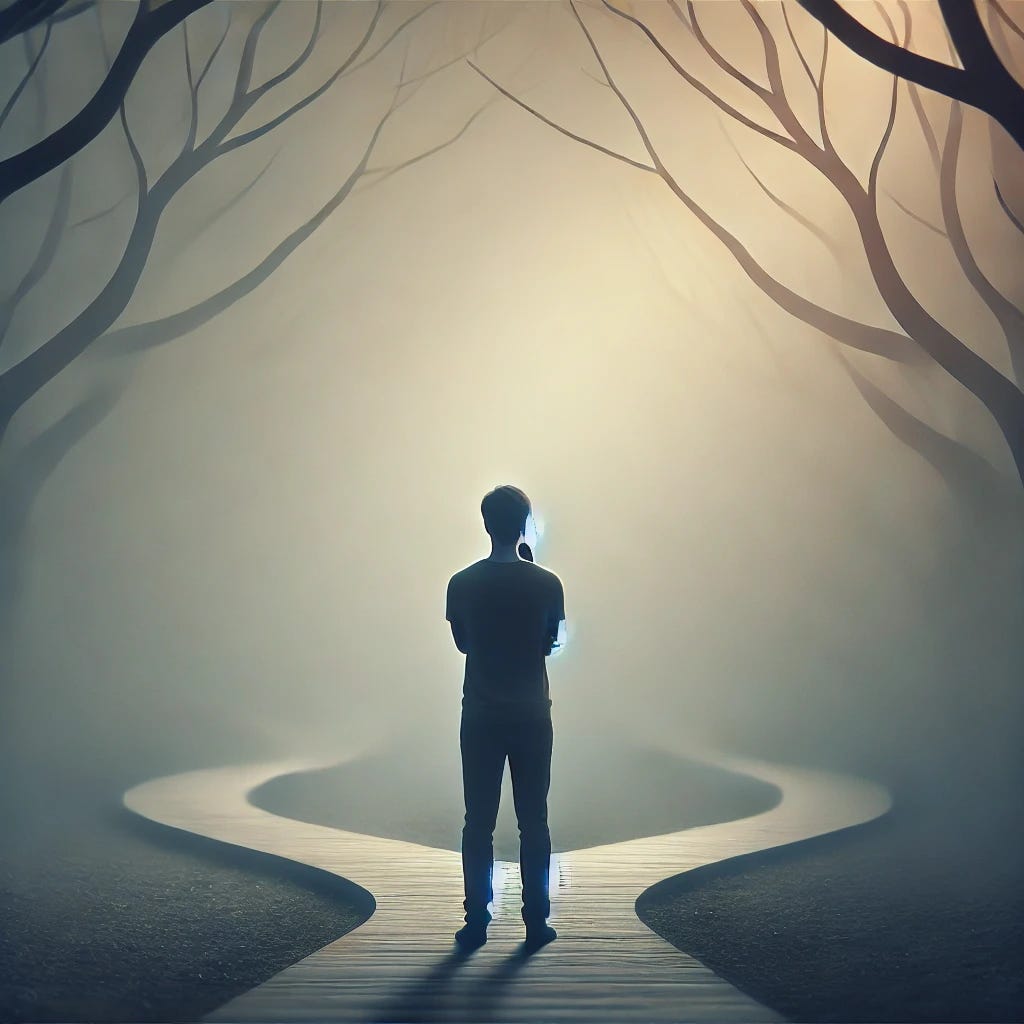What If I’m Wrong?
The quiet courage of questioning what we think we know — and why that might be the smartest thing we ever do.
"The greatest enemy of knowledge is not ignorance, it is the illusion of knowledge."
— Stephen Hawking
We all want to be right. And most of us — at least the functional ones — are trying to live and lead from a place of logic, integrity, and conviction. But what happens when the very convictions that shape our choices… are wrong?
Not just slightly off, but fundamentally flawed — outdated, inherited, or infected with bias?
We rarely ask ourselves this uncomfortable question:
“What if I’m wrong?”
Why? Because it’s not just humbling — it’s destabilizing.
It shakes the foundation. It threatens identity. It requires the kind of mental flexibility that doesn’t get applause or promotions.
But asking it — sincerely, frequently, and courageously — might be the most important thing we ever do.
The False Comfort of Certainty
Certainty is seductive. It makes us feel safe.
It offers clarity in a chaotic world.
But certainty also closes doors. It shuts down curiosity. It builds ideological bubbles and echo chambers. And worst of all, it makes humility optional.
History doesn’t lack examples:
Doctors once believed bloodletting cured disease.
Scientists once insisted the Earth was the center of the universe.
Economists believed home prices could never fall nationally. (Hello, 2008.)
And in each case, the smartest people in the room were absolutely convinced they were right — until they weren’t.
As Mark Twain put it:
"It is easier to fool someone than to convince them that they have been fooled."
And that includes ourselves.
The Question That Opens Everything
Here’s a radical idea:
Instead of fearing the question “What if I’m wrong?”, what if we made it a daily discipline?
Because the truth is:
Being wrong is not a character flaw.
It’s not a failure of intelligence.
It’s just… inevitable.
So the question isn’t whether we’ll be wrong. The question is: How quickly will we notice?
How open will we be to course-correcting?
And who have we empowered to challenge us when we can’t see it ourselves?
"What Would Have to Be True?"
When we start to feel certain — especially emotionally certain — there’s a powerful question we can ask:
“What would have to be true for me to be wrong about this?”
“What evidence, if presented, would cause me to change my mind?”
These questions aren’t weakness. They’re the foundation of wisdom.
Because the moment we can't imagine being wrong… we’re almost certainly drifting toward it.
These questions do something else too: they build our resistance to confirmation bias.
They move us from defending our beliefs to interrogating them.
And that’s where growth lives.
A Thought Experiment: Argue Against Yourself
Here’s a challenge:
Take one of your most strongly held beliefs — political, moral, philosophical — and write a thoughtful, reasoned argument for the opposite position.
Don’t strawman it. Don’t mock it. Do it sincerely. As if you had to present it to someone you respect.
It’s harder than it sounds.
But it’s incredibly revealing.
The philosopher F. Scott Fitzgerald once said:
"The test of a first-rate intelligence is the ability to hold two opposing ideas in mind at the same time and still retain the ability to function."
The goal isn’t to abandon your beliefs.
The goal is to earn them — not inherit them.
My Beliefs Are Getting Grayer
As I get older, my views — like my hair — are getting grayer and grayer.
The black-and-white certainties I once clung to have been replaced with nuance, with complexity, with maybes and it depends. And oddly enough, I feel more grounded now than I ever did when I “knew everything.”
In fact, I hold very few, if any, absolute truths anymore.
But the truths I do hold? They’ve been pressure-tested.
They’ve survived questioning.
They’ve been reshaped and refined by doubt.
And they remain — not because I’ve refused to let go of them, but because I’ve rechosen them… again and again.
The Quiet Power of Humble Leaders
The best leaders I know aren’t the ones with the most confidence.
They’re the ones with the most curiosity.
They say things like:
“Tell me where I might be missing something.”
“What’s a perspective I haven’t considered yet?”
“What would it take to change my mind?”
They don’t wield certainty as a weapon.
They offer it as a hypothesis.
And paradoxically, these are the leaders people trust the most — not because they always get it right, but because they’re not afraid to admit when they don’t.
Final Thought
“It ain't what you don't know that gets you into trouble. It's what you know for sure that just ain't so.”
— Mark Twain
We all hold ideas that feel unshakable — until life shakes them.
What if we didn’t wait for a crisis to start questioning?
What if the most courageous question we could ask ourselves was:
What if I’m wrong?
Not to prove weakness.
But to uncover wisdom.
Because real strength doesn’t come from being right.
It comes from being willing to find out when we’re not.
Thought Experiment:
Pick one belief you hold with conviction — political, personal, or professional.
Now ask yourself:
What would have to be true for me to be wrong about this?
What evidence would I need to see to change my mind?
Can I make a sincere case for the opposing viewpoint?
Write it down.
Sit with it.
Matt DiGeronimo is a writer, thinker, and leadership strategist who simplifies the complex and challenges conventional wisdom. Please message me for public speaking or collaboration opportunities.
P.S. - Take a look at my ebook, “Mental Judo” - if this is NOT the best $49 you’ve ever spent, let me know and I will refund your money PLUS an additional $100 for wasting your time.











This is similar sort of process you go through in certain types of therapy. Taking what you know and disecting it. It's really interesting to apply it to every day life. Will definitely give it a go.
My first reaction was you rewrote Gibbs Rule #51 (from NCIS). My second thought was I like finding out I'm wrong. Then I know I've learned something.